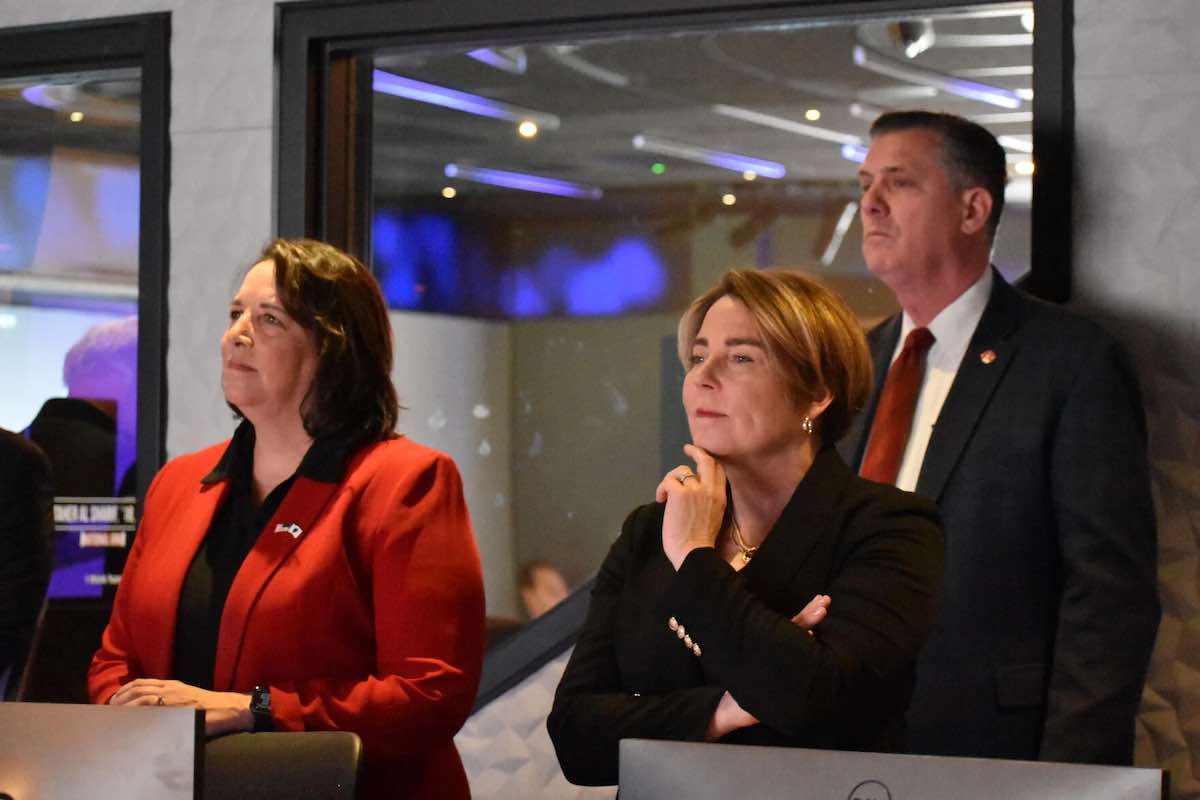latest
Healey pushes legislators for local-option tax hikes on hotels, meals and vehicles

By Chris Lisinski
Gov. Maura Healey’s package of local-option tax hikes and other policy changes once again faces a frosty reception in the Legislature, and her administration wants city and town leaders who like the ideas to flex some political muscle.
Healey deputies on Tuesday urged a group of local officials to assist the push for the legislation, known as the Municipal Empowerment Act, that the governor revived after its predecessor died last year without a vote.
“It’s time to channel all of our collective energy into getting the Municipal Empowerment Act passed,” Danielle Cerny, chief of staff at the Executive Office for Administration and Finance, told municipal leaders. “Your ideas helped to build the bill, and we very strongly believe that it’s going to be your stories and your advocacy that help us get it across the finish line this session.”
They might face an uphill climb getting House and Senate Democrats on board.
Legislative leaders never brought an earlier version of Healey’s proposal to a House or Senate vote last year, and they were noncommittal about the reboot last week.
When a reporter asked House Speaker Ron Mariano about greater support for the new bill compared to last time around, the Quincy Democrat replied, “Do you have a poll on that?”
“I’m trying to get the votes in the House … I don’t know who you’re speaking to,” Mariano said.
Cerny said at a Local Government Advisory Commission meeting Tuesday that the administration “did make good progress” on the first pass at the legislation. Lawmakers split it into two bills, which received favorable rewrites from the Municipalities and Regional Government Committee and the Revenue Committee before dying in Ways and Means.
“We are feeling pretty confident that with a bit more runway this year and, I think very critically, with the support of all of you, we can really turn these ideas into law this session,” Cerny said.
Many of the local government leaders who heard Cerny’s pitch are already on board with the bill. Attendees praised the ability to raise certain taxes that municipalities would gain, which some opponents have argued conflicts with Healey’s pledge to reduce costs for Bay Staters.
The bill would increase the maximum local option tax on hotels, motels and rentals from 6% of the price of a room to 7%, or from 6.5% to 7.5% in Boston. It would also increase the maximum local option meals tax from 0.75% to 1%, and allow municipalities to add a surcharge of up to 5% on motor vehicle excise bills.
Franklin Town Administrator Jamie Hellen said in fiscal year 2024, the meals tax generated $750,000 for his town and the hotel tax brought in $690,000. Healey’s proposal, he said, could increase those revenues by another $650,000 — revenue that he said “could be a game-changer for our community.”
“As cities and towns become even more reliant on the property tax, these options give cities and towns another way to help support the funding of essential services,” Hellen said. He later added, “This is particularly important now with a challenging state revenue picture and uncertain impact from the federal government.”
Healey’s proposal also includes other reforms, such as allowing the creation of regional boards of assessors, updating procurement laws, allowing remote meeting participation permanently, and boosting enforcement for “double poles.”
Stow Town Administrator Denise Dembkoski praised the remote meeting authorization, which some civic groups have argued is insufficient because it allows but not require remote and hybrid access to public proceedings.
Massachusetts made it easier to use virtual and hybrid formats for public meetings early during the COVID-19 pandemic, and lawmakers have extended the policy several times since then. The latest extension is set to expire on March 31, 2025.
Dembkoski said remote meeting flexibility can help municipal governments “run and maintain and attract new talent and public engagement.”
“This has been enormously successful over the last five years, and its success is rooted in its flexibility,” she said. “Codifying these remote meeting options will meet the needs of not only the smallest towns in the commonwealth, but all 351 communities.”
Healey added several new measures to her updated bill and dropped a few others from the original, too. The redraft newly aligns the procurement of snow hauling with snow removal, repeals a law limiting school districts’ ability to start their own school bus services when private transportation companies are available, and includes language eliminating criminal or civil liability for anyone who administers fentanyl strips.
Cerny said the fentanyl strip language would ensure local officials can get those public health tools in the hands of residents who need them.
“We think this is a really commonsense activity, but we also know that some cities and towns have understandably expressed concerns that the definition of drug paraphernalia today covers fentanyl strips,” she said. “That’s created a bit of a chilling effect on the ground and has prevented some of our local public safety and health officials from feeling comfortable distributing these really important overdose prevention tools.”






